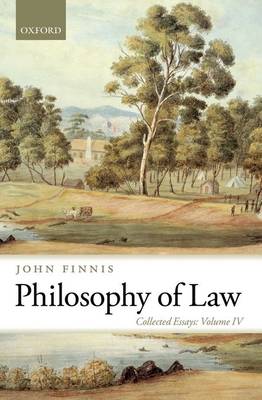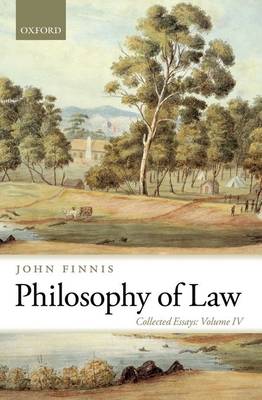
- Afhalen na 1 uur in een winkel met voorraad
- Gratis thuislevering in België vanaf € 30
- Ruim aanbod met 7 miljoen producten
- Afhalen na 1 uur in een winkel met voorraad
- Gratis thuislevering in België vanaf € 30
- Ruim aanbod met 7 miljoen producten
Zoeken
Omschrijving
John Finnis has been a central figure in the fundamental re-shaping of legal philosophy over the past half-century. This volume of his Collected Essays shows the full range and power of his contributions to the philosophy of law. The volume collects nearly thirty papers: on the foundations of law's authority; major theories and theorists of law; legal reasoning; revolutions, rights and law; and the logic of law-making. The essays collected include Finnis' recent appreciations and root-and-branch critiques of Hart's legal and political theories, his engagements with other central figures and works in the field, including Dworkin's Law's Empire; Raz on authority and coordination; Coleman, Leiter and Gardner on legal positivism and naturalism; Aquinas as founder of legal positivism; Weber on the fact-value distinction and legitimation; Unger on indeterminacy in law; Posner on intention and economics; Kelsen and courts on revolutions; game-theory and rational-choice theory; with misinterpreters of Hohfeld on rights logic; John Paul II on voting for unjust laws; analogy's role in legal reasoning; the distribution of constitutional authority in the Empire and its dissolution; the judicial opportunism of separation of powers doctrine in the Australian constitution; the architecture of Blackstone's Commentaries; restitution in civil wrongs; and many other aspects of law and legal theory. Several papers bring to bear his extensive work as a constitutional adviser and lawyer on persistent problems of constitutional theory. Previously unpublished papers include two on critical or post-modern legal theory, and an introduction reflecting on legal philosophy's development and future.
Specificaties
Betrokkenen
- Auteur(s):
- Uitgeverij:
Inhoud
- Aantal bladzijden:
- 550
- Taal:
- Engels
- Reeks:
Eigenschappen
- Productcode (EAN):
- 9780199580088
- Verschijningsdatum:
- 26/05/2011
- Uitvoering:
- Hardcover
- Formaat:
- Genaaid
- Afmetingen:
- 236 mm x 160 mm
- Gewicht:
- 898 g

Alleen bij Standaard Boekhandel
+ 302 punten op je klantenkaart van Standaard Boekhandel
Beoordelingen
We publiceren alleen reviews die voldoen aan de voorwaarden voor reviews. Bekijk onze voorwaarden voor reviews.











